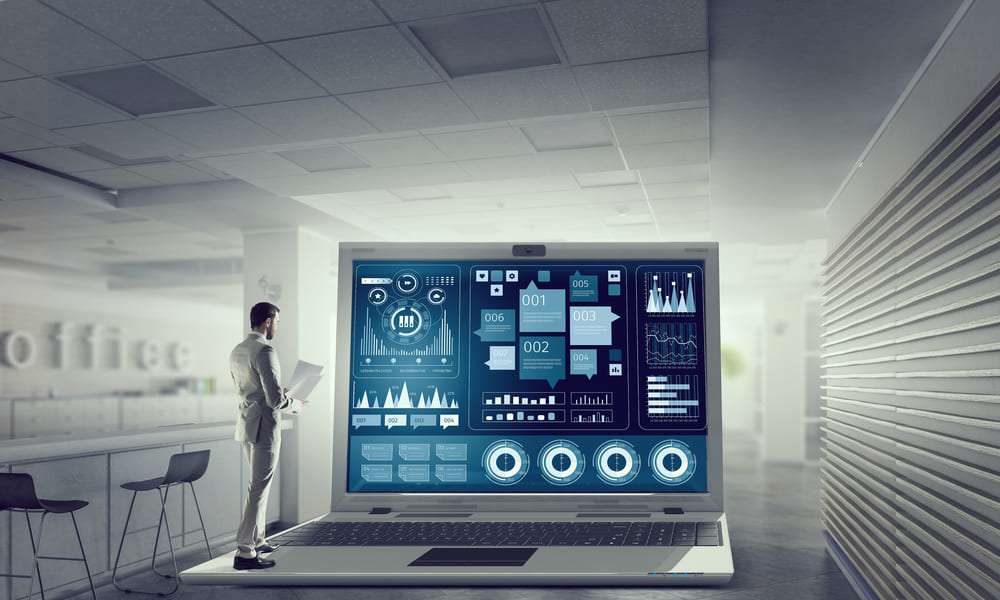The Future of Data
Science and ERP: Trends and
Data science and Enterprise Resource Planning (ERP) are two rapidly evolving industries that are changing the way businesses operate. From big data analysis to cloud-based solutions, the advancements in these fields are providing new opportunities for businesses to improve their operations and stay ahead of the competition.
In this article, we will explore the latest trends and predictions in the field of data science and ERP. By understanding these trends, you can stay ahead of the curve and be prepared for the future of these industries.
Trends in Data Science
1. Increased Focus on Big Data : With the growing amount of data being generated every day, businesses are looking for ways to make sense of this data and use it to drive their operations. As a result, there is an increased focus on big data analysis and the development of new tools and techniques to process and analyze large amounts of data.
2. Advancements in Artificial Intelligence : Artificial Intelligence (AI) is becoming increasingly sophisticated and is being used in a wide range of applications, from customer service to marketing. As AI continues to evolve, it will play an even greater role in the field of data science, providing businesses with new opportunities to improve their operations and gain a competitive edge.
3. Growth of Cloud Computing :Cloud computing is rapidly growing in popularity and is becoming a crucial component of data science. By using cloud-based solutions, businesses can store and process large amounts of data more efficiently, reducing costs and increasing their ability to analyze data in real-time.
Trends in ERP
1. Move to Cloud-Based Solutions : Just like in data science, there is a growing trend in ERP towards cloud-based solutions. This shift is driven by the need for businesses to have more flexibility, scalability, and cost-effectiveness in their ERP systems.
2. Integration with Other Technologies :ERP systems are becoming increasingly integrated with other technologies, such as big data analytics and AI. This integration is providing businesses with new opportunities to optimize their operations and gain insights into their data.
3. Emphasis on User Experience :As ERP systems become more complex and sophisticated, there is a growing emphasis on ensuring that these systems are easy to use and provide a positive user experience. This is crucial for businesses to ensure that their employees are able to effectively use their ERP systems and achieve their goals.
Table: Trends in Data Science and ERP with Statistics
| Industry | Trend | Statistics/Facts |
| Data Science | Increased Focus on Big Data | By 2025, it is estimated that 463 exabytes of data will be generated every day. This represents a growth of nearly ten times the amount of data generated in 2020. |
| Data Science | Advancements in Artificial Intelligence | According to a report by Accenture, AI has the potential to increase productivity by 40% and add $14 trillion to the global economy by 2035. |
| Data Science | Growth of Cloud Computing | Gartner estimates that the global cloud computing market will grow from $214.3 billion in 2019 to $295.6 billion in 2022. |
| ERP | Move to Cloud-Based Solutions | According to a report by Grand View Research, the global cloud ERP market is expected to grow at a compound annual growth rate of 9.5% from 2020 to 2027. |
| ERP | Integration with Other Technologies | A study by Forbes Insights found that more than 60% of businesses believe that the integration of ERP systems with big data analytics and AI will be critical to their success in the next three to five years. |
The field of data science and ERP is rapidly evolving, and businesses need to stay ahead of the curve to ensure that they are using the latest tools and technologies to improve their operations and gain a competitive edge. By understanding the trends and predictions in these industries, businesses can prepare for the future and take advantage of the opportunities that lie ahead. In conclusion, the future of data science and ERP is bright and filled with new opportunities for businesses to optimize their operations and stay ahead of the competition. By staying informed and prepared, businesses can ensure that they are making the most of these industries and achieving their goals.
Related Posts
10,000+ unique online course list designs





